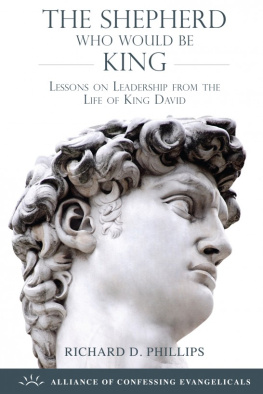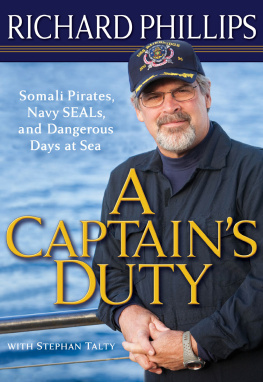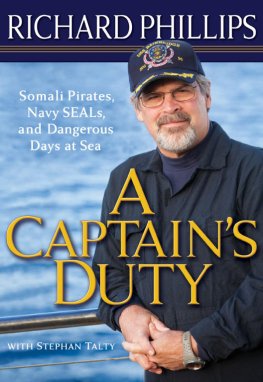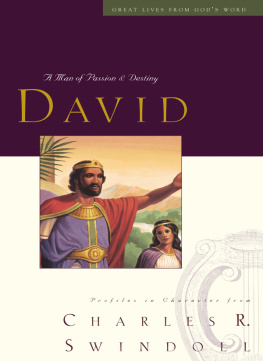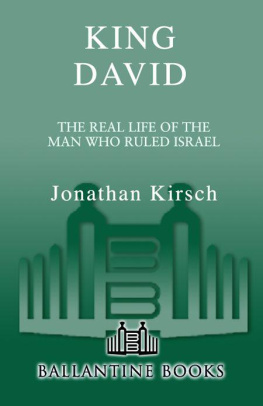THE SHEPHERD WHO WOULD BE KING:
Lessons on Leadership from the Life of King David
Richard D. Phillips
Copyright Alliance of Confessing Evangelicals
600 Eden Rd. Lancaster, PA 17601
Smashwords Edition
2015 by The Alliance of Confessing Evangelicals
All rights reserved. Published 2015. Printed in theUnited States of America
Originally published as The Heart of anExecutive
Doubleday 1999
ISBN-13: 978-0-9846362-5-9
ISBN-10: 0-9846362-5-0
Scripture quotations taken from the New InternationalVersion, NIV, copyright 1973,1978, 1984 by International BibleSociety. Used by permission.
All rights reserved.
To my father
The shepherd of my youth,
The model for my
manhood
and
To the Good Shepherd
Who laid down His life for the sheep,
and sits upon the throne.
Table of Contents
Preface
This book is not written for organizationsbut for the men and women who inhabit them, who indeed are theorganizations we are so concerned about today. We are living in atime when change and new forms of effectiveness are required at adizzying pace. Reengineering, reorganization, and rightsizingare but a few of the means employed to turn around anorganizations sagging performance. But how often our efforts atchange fail to address the real and underlying issues at hand. Oursis not a failure of structure or alignment, but something that runsmuch deeper. Our main concern should be with the state ofleadership today and with the passions and principles that informthat leadership. Yet leadership is seldom found in a consultantsbriefing packet. My conviction and the conviction of this book isthat organizational change requires individual change and growth,first and foremost among our leaders. For leadership takes placefirst and foremost in the human heart, and change must first residethere if it is to make a credible and enduring impact on ourselvesand our organizations.
The story of David, Israels greatest kingand hero of the Bibles Old Testament, is the story of anexecutive. That may sound strange in a time when executives are,generally speaking, anything but heroes. But David was not typicalof executives, then or now. David was not a typical anything. Heand his story call us to reconsider our vision not of what is orwhat was, but what ought to be and indeed can be. Through his lifehe sets before us not only different answers but differentquestions as well, challenging us to raise the line of our sightand aspiration.
Davids story is that of a career, anexecutive career. His story is like that of so many others,preparation leading to advancement, trials and challenges servingto build character and hone skills, advancement leading toachievement, and finally the passing on of the torch to others. Atthe same time, Davids story is like no other: it comes down to usout of the centuries as an inspiring challenge, a rallying cry forthe wearied heart, and a reminder that all dreams need not fallshort of their realization.
Davids story is essentially a story ofcontrasts. We start with the contrast between David and Goliath,the names themselves serving as a metaphor for the little guystanding up to the bruiser. The startup company against theFortune 500. Davids success in this early encounter leads us tothe conflict between David and King Saul, the changeagentvisionary versus the paragon of self-serving power. Then, just whenwe think we have left conflict behind, we enter into the realstruggle of this story, that which takes place within Davidhimself. In all these conflicts and contrasts we encounterchallenges familiar to our own time, most dramatically when Davidis forced to reckon with the mixed reality of his own heart.
Davids story is not moral or myth, any morethan David was himself. David was a leader and executive, a manwhose capacity for both greatness and folly is staggering.Therefore, the colors that so boldly comprise his portrait are thevery ones that must make up our own. In Davids story todaysmanager and leader will see his own challenges, her ownfrustrations and dreams. The Shepherd Who Would Be Kingtells a real but far from commonplace story; Davids lifechallenges all of us today who would be called leaders, and kindlesthe fire of hearts grown weary. My hope, then, is that you willjoin me in this story, this life, and in this living lesson sent tous by the Bible and its heavenly Author, to look within the heartof Davidand thereby into your own as well there to gaze upon theheart of an executive.
As a final note, I wish to explain my use ofmale and female pronouns in this book. All of the major charactersin this story are men; such was the Israel of 1000 B.C. But sincematters of the heart transcend gender distinctions, I haveconsciously applied lessons for the modernday audience to both menand women, both of whom are challenged to reckon with theformidable task of leadership as so vividly depicted in Davidslife and career. Here is yet another instance in which the centraltheme of his life is so relevant to us: The Lord looks at theheart.
I have much to be grateful for in connectionwith this book and many friends to thank for their part in it. Ithink first of my friends and colleagues on the leadership facultyof the United States Military Academy at West Point, who like ironon iron have honed my understanding of this great subject.Particularly, I think with love and appreciation of the lateColonel Jeff McNally, a master teacher of the art and science ofleadership and a friend who nurtured and inspired my own efforts. Iespecially wish to thank Greg Hiebert, my dear friend, colleague,and mentor, who has so enriched and enlarged my own journey. Tohim, and my many friends at BellSouth Corporation, I am greatlyindebted for much love and learning. Similarly, I am indebted to mybrothers and sisters at Tenth Presbyterian Church in Philadelphiafor their love and encouragement. I am most grateful to CharlesMorris and Scott Waxman for their vision and support in thiswonderful project, as well as to my editor, Eric Major ofDoubleday, for his graciousness and skill.
Finally, I thank my wife Sharon with loveand a special gratitude, for her steadfast endurance andirreplaceable participation in this wonderful labor. You are mytrue friend and my hearts true home.
Prologue: The Shepherd
Davids career started out early and lonely,not on summits of power and achievement, but in lowly fields ofservice, in a time of preparation for later fulfillment. Like somany others, David practiced on a micro scale the skills with whichhe would later write large. But most importantly, Davids earlylife shaped the principles that would guide him on theextraordinary journey that lay ahead, the like of which no novelistwould dare to invent.
As is so often the case among the trulygreat, Davids origins were humble. He was a shepherd, a mostdemanding calling then and now, one that yields rewards only afterthe expenditure of much effort and skill. It was in these fields,in the pastures amid the flocks of his father Jesse, that Davidreceived his first lessons in the art of leading and in thedisciplines of the executive.
Being a shepherd is exhausting. For onething, the shepherd leads the flocks out into lands filled withdanger: predators, hostile weather, starvation, and disease. Foranother, sheep are just about the most inept followers imaginable.Besides being plain stupid, they are easily panicked and annoyedand debilitated. Unable to defend themselves against wolves, theyalso need protecting from themselves; sheep are notorious forwandering off good pastures or away from sources of water, fordestroying what good grass is available, and for placing themselvesin one irretrievable situation after another.
As a result, Davids experiences as ashepherd were many and varied. A shepherd has to think. He has towatch and plan and anticipate, making rapid decisions and takingquick and determined action, all valuable skills for theexecutive-in-training. The shepherd defends the flock frompredators, and this requires anticipation and watchfulness. Heguides the sheep on their way, directing them to green pastures andfresh waters. He watches closely for strife and conflicts that leadto disorder and confusion within the flock. The shepherd preparesfields in advance of the flock and calculates likely pitfalls anddangers. When they are rooted in one place too long he prods themforward; when they rush off heedlessly, the shepherd gathers themin.

